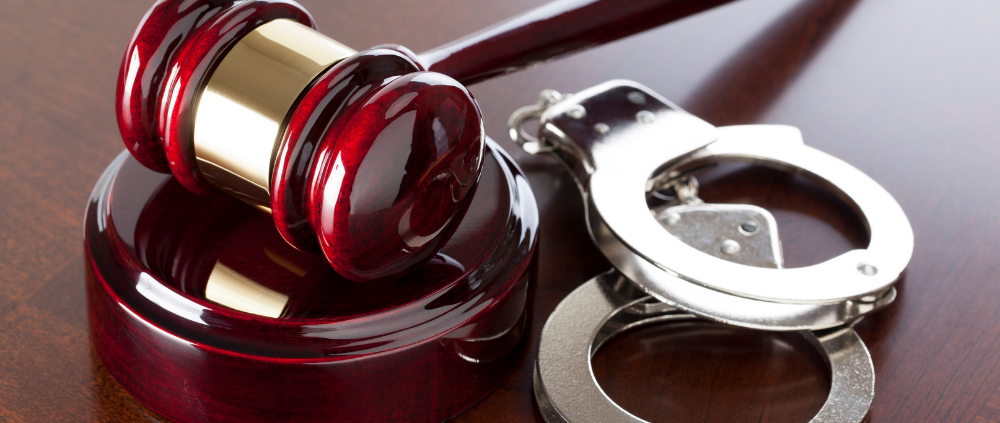If you’re facing criminal charges, you’re likely dealing with a misdemeanor or felony charge. You are probably wondering what the difference is and how your case will be different depending on the type of charge.
Let’s look at how misdemeanor cases differ from felony cases and what you can expect depending on where your case falls.
Misdemeanor vs. Felony: What’s Worse?
Both misdemeanors and felonies are criminal charge classifications. Misdemeanor charges are less serious than felony charges. Felonies are the most serious type of crimes and have the most serious punishments.
Misdemeanor vs. Felony: What’s the Difference?
The primary difference between a misdemeanor and a felony is in the seriousness of the charges and potential consequences. The seriousness of the crime will help determine if it is a felony or a misdemeanor. The criminal history of the charged party will also influence the type of charge assigned to the crime. For example, a first-offense DUI may be charged as a misdemeanor, whereas a third-offense DUI may be classified as a felony.
Misdemeanor and felony charges also have different legal procedures. With a misdemeanor charge, you will need to appear before a judge (but no jury). With a felony charge, you will need to appear before a judge for an indictment or preliminary trial and then potentially have a jury trial.
Related: If You’re Arrested for a Crime, Immediately Take These 6 Steps
Examples Misdemeanors and Felonies
Depending on the jurisdiction, the following crimes are typical examples of misdemeanor and felony crimes.
Felony Crimes
Felony charges are serious and typically carry potential jail terms that range from a year to life in prison. Some examples of felony crimes include:
- Assault
- Homicide
- Theft and property crimes
- Robbery
- Kidnapping
- Sex offenses
- Grand theft
- Major drug possession
Related: Facing Florida Drug Possession Charges? 6 Things You Need to Know
Misdemeanor Crimes
Misdemeanors are less serious but can still carry potential jail terms from five days up to one year. Some common examples of misdemeanor crimes include:
- Vandalism
- Disorderly conduct
- Battery
- Shoplifting
- Giving alcohol to a minor
- Driving under the influence
- Driving with a suspended license
- Minor drug possession
Infractions and Ordinance Violations
It’s worth noting that there are two other legal offenses that are punishable by the law: infractions and ordinance violations. Both infractions and ordinations are less serious than misdemeanors. They are often referred to as petty offenses and come with a fine or administrative penalty. They may include:
- Traffic violations
- Littering
- Jaywalking
- Drinking in public
- Fishing/hunting without a license
- Building permit violations
- Walking an unleashed dog
- Parking violations
- Smoking in non-smoking area
- Noise violation
- Disturbing the peace
- Trespassing
If these infractions are serious or repeat offenses, they may be moved up to a more serious misdemeanor charge.
Was I Charged with a Misdemeanor or a Felony?
To determine what your charges are, don’t rely on what types of crimes are typically considered a misdemeanor or a felony. Look at your official case information to determine what the case has been classified as. Specifics of the case will determine whether it is officially a misdemeanor or felony.
As previously noted, a crime that is typically classified as a misdemeanor can be moved up to a felony charge if it is a repeat offense. On the other hand, a crime that is typically a felony charge may be reduced to a misdemeanor in certain situations.
Can I Fight Misdemeanor or Felony Charges?
While misdemeanors are less serious than felony charges, all criminal charges are serious and should be handled carefully.
With the right defense and a good criminal defense attorney, you can limit the impact the charges will have on your life. You can fight to:
- Reduce the charges. You can fight to turn a felony charge into a misdemeanor.
- Lessen the sentencing. You can plead your case to receive lighter consequences such as less jail time or lower fines.
- Expunge your records. If you are convicted of a crime, you can work to remove the charges from your criminal record. (Learn more about how you can get a DUI off your record in Florida.)
- Dismiss the charges. In the event that you were improperly charged or your case was not appropriately handled by law enforcement, you may be able to get your charges dismissed.
Misdemeanor vs. felony — whichever charge you’re facing charges, one thing is certain: an attorney can help you get the best possible outcome. You will be more likely to get a positive outcome when you have an experienced criminal defense attorney by your side. They can develop a strong case based on the facts and fight for your best interest.
If you’re dealing with misdemeanor or felony charges, don’t wait to seek legal help.
Contact TJ Grimaldi for a free consultation today to find out how our law firm can help you get a positive outcome that lessens the impact of your charges on your life. Schedule your consultation or call 813-226-1023 now.




Leave a Reply
Want to join the discussion?Feel free to contribute!